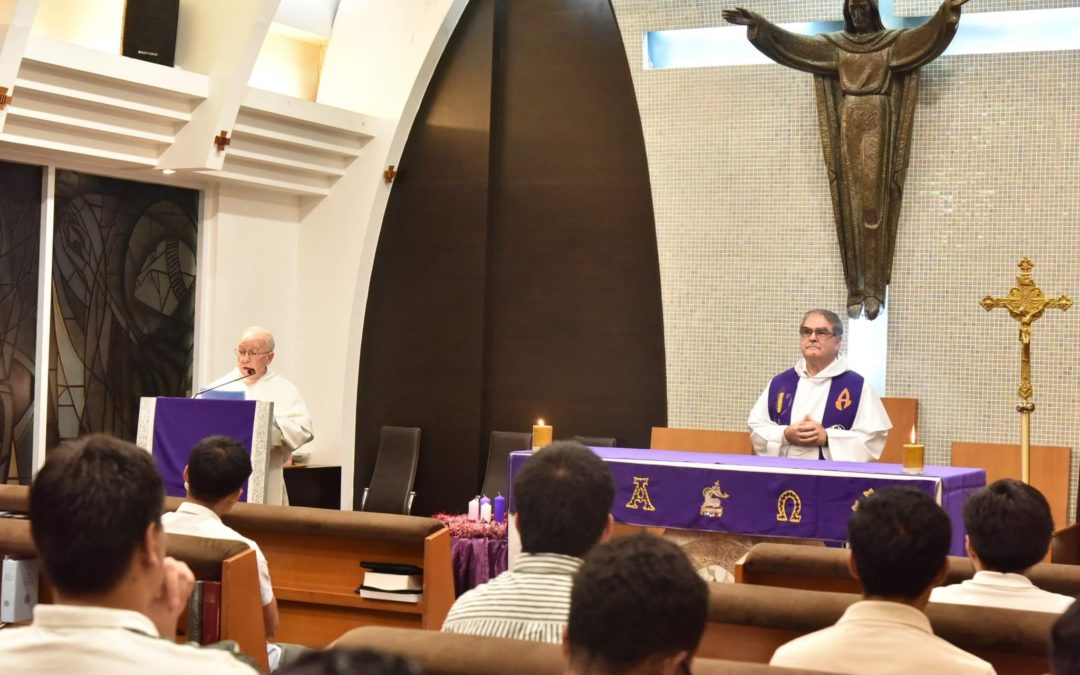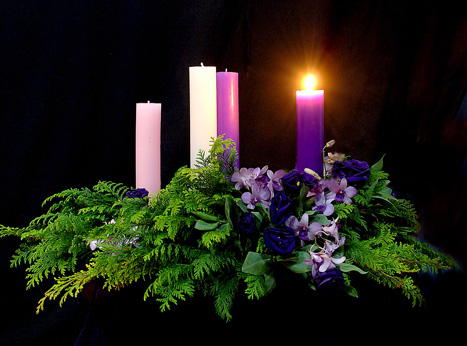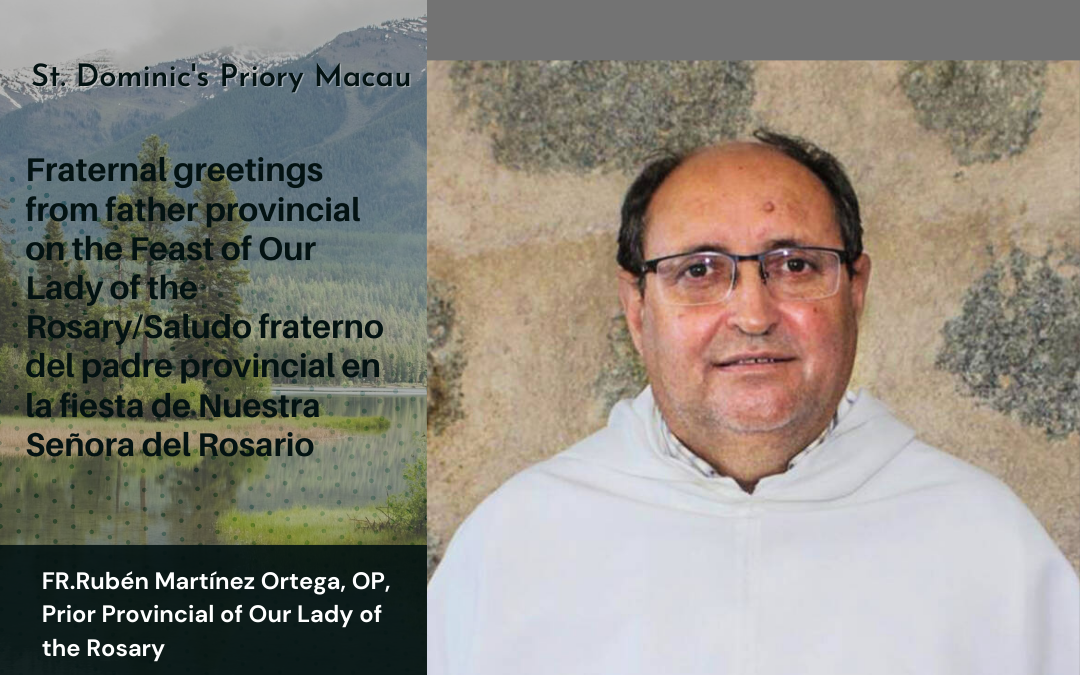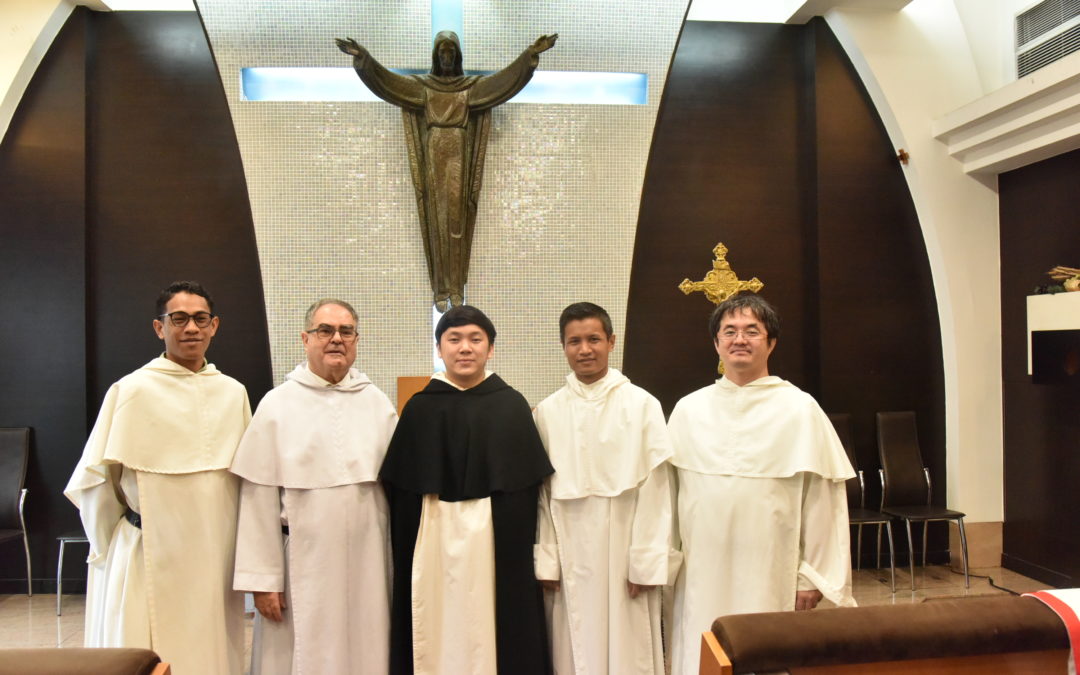
We celebrate the Feast of the Holy Family. The Sacred Readings invite us to meditate on the meaning of the Family of Nazareth and on our own family. In Sirach 3:2-6, 12-14, God sets a father in honor over his children; a mother’s authority he confirms over her sons. In Colossians 3:12-21, “Put on, as God’s chosen ones, holy and beloved, heartfelt compassion, kindness, humility, gentleness, and patience”, and in the Holy Gospel of St. Luke ( 2:41-52), “Each year Jesus’ parents went to Jerusalem for the feast of Passover, and when he was twelve years old, they went up according to festival custom.”
We meditate on the Holy Family, on our family.
The family is in crisis today: separation, divorce, abortion, domestic violence, child abuse, pornography, wounded families, broken families, no family. Even the concepts of marriage and family are often ambiguous with the growing reality of same-sex marriages, single-parent families, and so on. The Christian family is also negatively affected by the secular views of man, gender ideology, family and society.
Still, for most people, the family is the number one value in their lives. For us Christians, in particular, the family is a sacred reality, a domestic Church, a community of life and love, the main school of our values and virtues, of prayer. The Old Testament writers recommend the practice of the virtues of obedience, piety, respect, compassion. The Fourth Commandment, “Honor your father and mother”, asks us to respect our parents. To respect them means to revere them, to esteem them, to love them, to care for them all their lives, particularly when they are old.
For us, the Holy Family of Nazareth continues to be the icon and inspiration of our families. On the day of the Feast of the Holy Family, we are asked to contemplate, venerate and imitate the Sacred Family of Nazareth: Jesus (called the son of a carpenter), Mary (the Mother of Jesus, the wife of Joseph and housekeeper) and Joseph (the carpenter of the town, Jesus’s custodian and head of the Holy Family).
I remember the wonderful meditation of Blessed Paul VI on his visit to Nazareth on January 5, 1964. The Pope told us then to continue learning the lessons of Nazareth. What lessons? Nazareth teaches us first on family life: its meaning, its beauty, its core which is communion in love. Nazareth teaches us, second, on silence: on the love of silence, such an admirable and needed habit, particularly today when we are disturbed by so much noise, by so many different voices in the digital world. The silence of Nazareth teaches us on the need for recollection, for interior and peaceful space; on the need to listen to good teachers, to our parents and brothers and sisters and, above all, to God. Nazareth teaches us, in the third place, on work and on the dignity of workers, of all workers. It teaches us about the importance of work in our life (as in the life of Jesus and Mary and Joseph), and its creative and redemptive dimension. We remember today the tragedy of unemployment and the terrible effects it causes in so many families!
Family is conjugal love, and parental and filial love. Its center is the children: we remember them here in this Eucharist with great love! We bring to our attention the vast number of children who are victims of violence, who are made objects of trade and trafficking, or forced to become soldiers and workers. We remember with sadness and hope infants killed in the womb, displaced, due to war and persecution. (Cf. Blessing Urbi et Orbi, December 25, 2014).
Bowing before the Crib we learn the lessons of genuine family life, silence and work. Above all, we learn the perennial lesson of love: we learn that we are loved and understood. After all, a house is where you live, a home, where they understand you.
A painter wanted to paint the most beautiful object in the world! He went to a big park to ask people: What is the most beautiful thing in the world for you? He asked a soldier: Nothing is more beautiful than peace: living together in peace! Then he asked a young couple: Love is the most beautiful thing: it makes the world go round. Then he asked a priest: Faith is the most beautiful thing: it moves mountains. The painter asked himself: How do I paint peace, and love, and faith? After a silent pause, he answered himself: I know what the most beautiful thing in the world is: my family, my home. It is here where I experience peace, love and faith. Jesus, God and man, found at Nazareth as a human being – peace, love and faith through the 30 years he lived at home with Mary and Joseph.
Indeed, the family, our family is the best thing in the world for each one of us. We thank God for the Holy Family, for our family. We offer this Eucharist for our families (for the members who have left us and those who remain with us), and also for broken families. We ask the Sacred Family of Nazareth to help us become more good members of our respective families: loving, caring, and sharing!
We give thanks to God for the unique, incomparable gift of family, of our family.
Jesus, Mary and Joseph, pray for us!

On 24 November 2021 Fr Javier Gonzalez accepted his office as Prior of St Dominic’s Priory in Macao. Three days later, he took the office during the community prayer of Vespers. It was a simple, meaningful ceremony, which consisted in the profession of faith and the oath of fidelity. Afterwards, Fr Javier addressed a few words to the community. He first explained that the public profession of faith and the oath taking indicated that he was accepting the office of Prior in the name of the Church. Then he welcomed the newly arrived student brothers from Hong Kong, inviting them to feel at home. He further thanked the former Prior, Fr Paul Fan, for his services to the community during the previous years and wished him success now in his new position as Master of Students. Finally, Fr Javier thanked the members of the community for their trust and evoked those words of St Augustine saying that the superior should strive to be loved by the brothers rather than feared, ever mindful that he must give an account of them to God. In closing, as the moment marked the very beginning of Advent, he encouraged everyone to let the new liturgical season be also the beginning of a new life, while he placed himself at the service of the community.

What is Advent?
The word Advent is derived from the Latin word advenire, meaning ‘to come’, referring to the coming of Christ.
In the Catholic Church, Advent refers to the four weeks preceding Christmas, a time of liturgical celebration that highlights the birth of Jesus Christ and, according to biblical prophecy, the Day of Judgment on which he returns.
Advent is a time of spiritual purification, as well as preparing for Jesus’ arrival. Purple is the color used in the vestments during celebrations, a symbol of the beginning of a new liturgical year, which occurs on the first Sunday of Advent.
Advent is a time for penance and spiritual cleansing, but for Christians, it is also a time of joy and rejoicing. This is because it nurtures the hope of the Messiah’s return through the celebration of his birth.
Advent represents Mary’s waiting for the birth of Jesus. This is announced by the Angel Gabriel in a vision in which he told her she was about to conceive the Son of God.
Advent always begins on the Sunday closest to the 30th of November and ends on the 24th of December, Christmas Eve.
The wreaths of candles has symbolic meanings tied to the Christmas season, and each of them has the meaning that the circle of wreath signifies the eternity of God with no beginning or end. And even each of the individual evergreen that makes up the wreath has the meaning that can be represented to our faith. We don’t mention each of them but the most important is that the wreath as a whole is meant to remind us of both immortality of our soul and God’s promises of everlasting life through our Lord Jesus Christ.
The four candles represent four weeks of Advent, and each candle represents each Sunday. Three candles are purple, the liturgical calendar color that represents the time of prayer, penance, and sacrifice.
The first purple candle symbolizes hope, Sometimes it is called the “Prophecy Candle” in memory of the prophets, especially Isaiah, who prophesied the birth of Christ. It symbolizes the expectation for the coming Messiah.
The second purple candle symbolizes faith. The candle is called the “Bethlehem Candle” as it symbolizes Mary and Joseph’s journey to Bethlehem.
The third candle is pink and symbolizes joy. It is the “Shepherd’s Candle”, and it is pink because rose is the liturgical color for joy. The third Sunday of Advent is Gaudete Sunday and is meant to remind us of the joy that the world experienced at the birth of Jesus, as well as the joy that the faithful have reached the midpoint of Advent.
The four and last purple candle, lighted on the four Sunday of Advent, symbolizes peace. It is the “Angel Candle,” as the angel’s message reminds us “Peace on earth, to the people of goodwill” (Luke 2:14 KJV). It is the final week of prayer, penance as we wait for the arrival of our Saviour.
In modern traditions, the Advent wreath we see does not include a white candle. But the white candle is in place in the middle of the wreath and on Christmas Eve. This candle is named “Christ candle” and it represents the life of Christ. The color white symbolizes purity because Christ is our sinless, pure Saviour.

Dear Brothers
From Venezuela, I want to send a fraternal greeting to all the brothers of the Province.
I am having a fraternal visit with our brothers in Venezuela and I am impressed by the work that our brothers here have done for decades. They have left a mark that can never be erased. What they have done will always be there. I am also impressed by the work that our brothers are doing now, by their enthusiasm and desire to do things well.
After two months in office and coinciding with the feast of the Patroness of our Province I would like to share with all the brothers of the Province a short reflection.
We all have a mission and we are all important. We are a community in which all brothers and sisters are living stones. But I get the impression that sometimes we forget this, that we are part of a community. I see that we often get obsessed with thinking about ourselves, doing what each one likes, and forgetting about the community and its future. We can then be an obstacle to the development of the Order. If each one only thinks about his own good, leaving aside the common good, we will be putting a stop to the mission that the Order has entrusted to it in the Church. With intransigence, physical and mental immobility we will scuttle the hard work that has been done so far and we will not allow the Order to move ahead. We will close the door to a better future.
I would like to invite everyone, young and old, to join forces; but above all to reflect on whether each one is an obstacle, a brake on the development of the Order, or if, on the contrary, with his attitude, he is an incentive for the construction of the Order.
Trying to make a project for the future I have seen that there are many young and old brothers who want to stay only in the place where they want, in the place where they think they are happy, or in the place where they think they can help. Brothers who just want everything to remain the same because they are very comfortable where they are. Brothers who forget and put aside their status as Dominican religious and become something else. Is it possible to make a common project with such an attitude? In order to make a common project, to restructure our presences and ministries, all these things are obstacles.
I invite all the brothers to have a high level of vision. Not to be afraid of the future, to make ourselves available to the common project, to know how to be each one in his place and put the best of each one in this common project. It must be everyone’s project for a future that we already have on top, that we must face now. To let more time pass and not make decisions will always be to postpone decisions that will cause more suffering and disinterest. I wonder what are we afraid of? St. Dominic lived himself into an uncertain future with courage and faith. He always exhorted the brothers to live a fraternal life in the community as a sign of communion and as the first place of preaching. He always invited the brothers to found convents as the basis for that fraternity.
On this day of Our Lady of the Rosary, our intercessor and our patroness, the mother who always encourages us not to be afraid of the challenges we have, today she invites us, as a good mother, to make a common project, without individualism, respecting each one’s values, knowing how to listen to each other and knowing how to be each one in his place. She Invites us to rethink what we do, how we do it, and where we do it. All to make a common project for the future and not stagnant in time.
I ask that this letter be read on the feast day of Our Lady of the Rosary in all the communities of the Province in the celebration of the Vespers, that the superiors exhort the brothers to think more about the common good than about their own and propose a day in the month of October to make a reflection in the community on the common project.
Happy Feastday. May the Lord pour out his grace on us, and may the Virgin of the Rosary protect us and encourage us to live our Dominican life to the fullest.
Fraternally
Fr. Ruben OP.

On 8 September 2021, the feast day of the Nativity of the Blessed Virgin Mary, our Burmese Brother Fermin Saw Simon Htoo renewed his profession in Macau. The renewal ceremony took place during the conventual Mass at St Dominic’s Priory, in the presence of the community and of some members of the Dominican Family. I promise obedience to God, to Blessed Mary, and to Blessed Dominic’s were Brother Fermin’s words, following the formula of profession used in the Dominican Order. Obedience not only to God but also to Blessed Mary. This shows the place of honor that Mary has always been given in the Order, which was placed under her tutelage from its foundation. Very fittingly, on this feast day of her Nativity, our Brother Fermin manifested his intention of dedicating his life to Jesus Christ, to whom also Mary dedicated her life. Our warmest congratulations.





